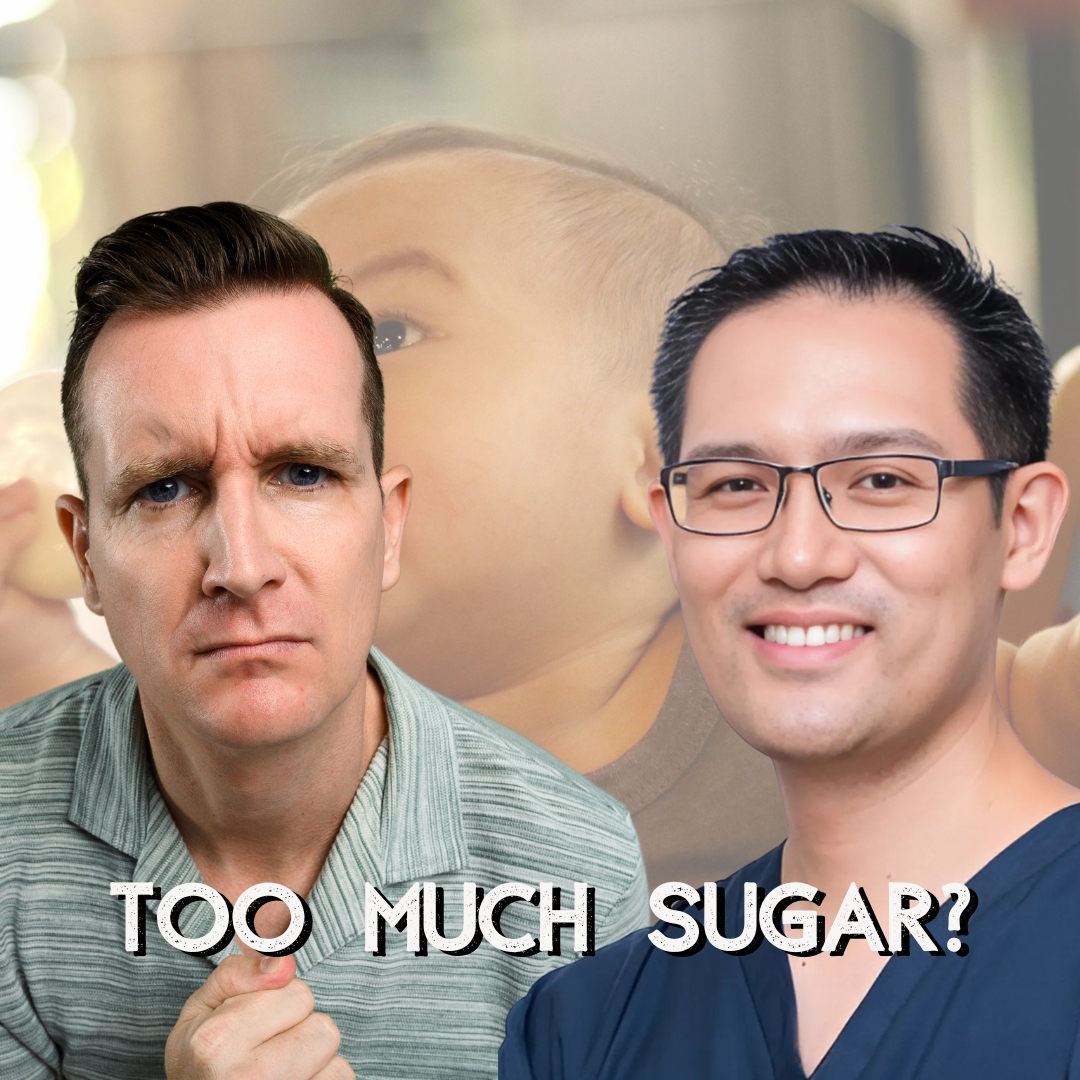My name is Niall Mackay, host of A Vietnam Podcast. My guest this time is very special Dr. Albert Viet Le, Managing Director of Premier Dental in Ho Chi Minh City and the only US and Australian board-certified periodontist currently practicing in Vietnam.
Before this podcast episode, I thought I understood why dental health was a challenge in Vietnam—but it wasn’t until I sat down with Dr. Albert Viet Le that the full picture really came together.
We unveiled the dental landscape in Vietnam, from culture and childhood habits, to national healthcare systems, to the future of dental tourism in Vietnam.
The Dental Reality in Vietnam
When I first started teaching in Vietnam, one of the things that shocked me was how many young kids had black, rotting teeth. These were beautiful, happy children—but their dental health was heartbreaking. I had never seen anything like it in Scotland or Australia. I didn’t understand why it was so common, but after speaking with Dr. Albert Viet Le on the podcast, it all made sense.
Albert explained that dental problems in Vietnam are mostly cultural and generational. For many years, dental health just wasn’t a priority. People were in survival mode, and taking care of teeth came far down the list. Parents didn’t go to the dentist themselves, so they didn’t bring their kids either.
Another big issue is the diet. Even though Vietnamese food is healthier than most Western diets, it’s full of hidden sugar. The best example Albert gave was milk. In the West, we drink plain milk. In Vietnam, most milk—even the kind kids get at school—is full of sugar. That’s just the norm here.
And then there’s the idea that baby teeth don’t matter because they’ll fall out anyway. That mindset leads to problems later when adult teeth come in already surrounded by decay and bad habits.
Bridging Two Worlds: Albert’s Journey to Vietnam
One thing I love about doing this podcast is hearing stories of people who came to Vietnam with one plan—and ended up doing something completely different. Dr. Albert Viet Le is one of those people.
Albert grew up in Melbourne, Australia. He trained as a general dentist there and worked for over 10 years. Later, he moved to New York to study periodontics—specialising in gum disease, dental implants, and oral surgery—at Columbia University, one of the top schools in the world.
The original plan was simple: finish his training in the U.S., then return to Australia. But things took a different turn. Albert and his wife, who is originally from Vietnam, stopped in Ho Chi Minh City for what was supposed to be a 6–12 month stay. That was back in 2017. Now, it’s been over eight years.
What changed? Albert saw an opportunity. Vietnam was growing fast, especially in healthcare. He saw the demand for high-quality dental care, but not many clinics were offering it. With his background and experience, he realised he could help raise the standard, make a difference, and build something meaningful.
And that’s exactly what he did. Today, Albert runs Premier Dental, one of the most advanced and respected dental clinics in Vietnam.
The Rise of Dental Tourism in Vietnam
For years, Thailand was the go-to place in Asia for medical and dental tourism. People flew there for big procedures because it was cheaper than back home—and still high quality. But now, Vietnam is catching up fast.
Albert told me that Vietnam is quickly becoming a top choice, especially for Australians and New Zealanders who need major dental work like implants, crowns, or full smile makeovers. In places like Australia, these treatments can cost a fortune—even with insurance. In Vietnam, patients can get the same level of care for a fraction of the price.
But it’s not just about being cheaper. What makes Albert’s clinic, Premier Dental, stand out is the focus on international quality at local prices. His team is highly trained, speaks fluent English, and uses the latest technology like 3D scanning and digital x-rays.
Still, there are some barriers. The biggest ones are trust and communication. People often don’t know what to expect from a Vietnamese clinic. They worry about safety, hygiene, and whether the staff will understand them. That’s why clinics like Albert’s focus so much on transparency, clear communication, and patient comfort—even before anyone books a flight.
Read more: Bridging Worlds: Identity, Legacy, and Coming Home
Technology Is Changing the Dental Game
One of the coolest parts of my visit to Premier Dental was seeing how much technology they use. Dentistry isn’t what it used to be—not even close. And Albert’s clinic is proof of that.
Gone are the days of those big, messy molds that made you gag. Instead, they use digital scanners to take clean, accurate images of your teeth in seconds. These scans can then be turned into 3D-printed models—and yes, I even got to take one home. My own teeth, printed in plastic. It was weird, but kind of amazing.
This kind of technology doesn’t just look impressive. It actually makes a real difference. Procedures are more accurate. Results are better. And patients feel more comfortable and less anxious, which, let’s be honest, is a big deal when it comes to dentists.
Albert and his team have invested in top-tier equipment—not just to follow trends, but to give patients a modern, smooth experience from start to finish. It’s a reminder that Vietnamese dentistry isn’t behind—it’s leading the way when you go to the right place.
The Floss Talk: Why It Matters More Than You Think
I admitted that I don’t floss every day. And Albert knew it the second I said I did. Dentists always know. You can’t hide it.
During our chat, Albert explained just how important flossing is. It’s not just about fresh breath. Flossing helps prevent gum disease, which can lead to serious health problems, including Alzheimer’s. That one shocked me. I never thought skipping floss could affect your brain, but now I won’t forget it.
He also cleared up a common myth: toothpicks are not a replacement for floss. They might get food out, but they don’t clean between the teeth properly. If you want to take care of your mouth—and your overall health—you need to floss.
Like Albert said, “Toothbrushes clean the front and back of your teeth. Floss cleans the in-between.” And those in-between areas are where the real problems hide.
Cultural (and Comedic) Dental Stereotypes
One of the funniest parts of our conversation was talking about dental habits by nationality. Albert has worked with people from all over the world, and he’s noticed some clear patterns.
Americans? Great smiles. They care a lot about how their teeth look.
British people? Not so great with the floss. (I can say that—I’m Scottish.)
Vietnamese? Strong teeth, but very prone to gum disease, often due to genetics and diet.
Indians? Some of the worst dental cases Albert’s seen, often due to a mix of neglect and diet.
He also mentioned that soldiers from the UK military had surprisingly bad teeth, while Australian soldiers had much better dental care. It’s not scientific, but it’s based on real experience—and made for a very entertaining chat.
It’s a good reminder that where you’re from can shape how you see dental care—and how much you actually do about it.
Conclusion
What I took away from this episode is simple: Vietnam’s dental scene is evolving fast. Clinics like Premier Dental are leading the charge—not just by offering lower prices, but by delivering world-class care with cutting-edge tech and international standards.
So if you’ve been avoiding the dentist, worried about cost, or just curious about how far Vietnam has come, this might be the right time (and place) to smile wider.
This Season is sponsored by Premier Dental. Discover the potential of a confident and healthy smile with the excellent dental clinic in Ho Chi Minh

